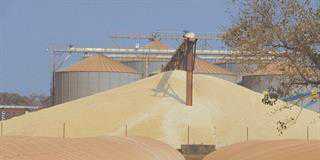
What is your vision for agriculture in the province for the next five years?
I really want to understand what the blockages are that cause frustration and impede growth for farming businesses and agribusinesses so that we as government can find ways to help. I’ll be asking questions internally in the department and I’ll also be travelling to every region in the province to meet with agricultural role players, asking where they think we as government can improve in terms of the services we provide.
What I will tell the farming sector in the Western Cape is that I will not break the department. The Western Cape Department of Agriculture is the best-performing government department in the country and my aim is to keep it that way.
What was the reasoning behind combining the departments of agriculture, economic development, and tourism under a single ministry?
The reason the Western Cape government has set up this new ministry called the Ministry of Economic Opportunities is to bring the political responsibility for the entire economy in the province under one umbrella. This will allow for better co-ordination in our main strategic objectives for the province, which are economic growth and job creation. There are many synergies between these two departments and by having insight into the affairs of both, I’m already seeing spaces where there have been gaps in the past.
READ MORE: Winde promises growth for Western Cape agriculture sector
For example, the economic development department previously identified agro-processing as one area with a lot of growth potential, but when it spoke to the agriculture department about finding ways to unlock this growth, it found that the focus was more on the primary sector and less on the processing side. As far as the economic development department was concerned, agro-processing was the agriculture department’s priority. So there was a gap in terms of who should drive growth in this area. This is definitely one of the issues that will be addressed now that there’s to be greater co-operation between the departments.
Will the agriculture department’s new affiliation with the economic development department strengthen the focus on agriculture as purely an economic sector, instead of concentrating too much on labour and social issues on farms?
Agriculture is a serious business in the economy in the Western Cape. It plays a major role in exports and we’ll treat it as such. I’ve already been part of two dialogue sessions between government and industry trying to deal with this explosion of labour issues. My job as MEC is not to play politics, but to create a favourable business environment. Ultimately it should be up to each economic sector to make sure its labour issues are dealt with.
This is not really the job of government, but because there’s a risk here, we are involved to help diminish that risk. My job is to create the right environment in which businesses can grow and create jobs, but if there are external risks such as labour disputes that are affecting our ability to grow the economy, we have to deal with them.
Do you think one of your duties should be to help improve the general perception of farmers by creating an awareness of the critically important role of the sector as food provider?
It’s definitely important to create an appreciation for what the sector contributes, but it’s even more important to get an understanding of the brand around food security, agribusiness and the role that farmers play. What we need to do is to get to a stage where a teacher asks a primary school pupil, “What do you want to do when you grow up?” and that child at least considers agriculture as an option.
As things stand now, I doubt that many young people would say they wanted a career in agriculture. How do we change this? How do we get young people to see this as a great career option? This is what we must work on.
To contribute to economic development in the rural areas, the Western Cape government has approved R1,3 billion for the roll-out of advanced broadband services to government institutions across the province. How will rural economies and farmers benefit?
At this stage, we don’t know exactly what the impact will be on the rural economy and agriculture and it’s not really for government to decide how this service will be used. But I’m convinced that it will make a meaningful contribution to increasing the province’s international competitiveness. This is an example of where government will create the platform and opportunity for businesses to benefit, but business must take the initiative to use this opportunity.
Most of the areas where the high-speed broadband services will be made available already have access to Internet services but not in abundance, and we think there’s a huge opportunity for providing a better service. I trust agricultural professionals will see the opportunities offered by more reliable, faster Internet access and find ways to help farming businesses benefit from this service.
From government’s side, we’ll start by getting state hospitals and other governmental service providers connected and this will immediately improve the speed and quality of services offered in rural areas.
Ismail Motala of the Deciduous Fruit Development Chamber said earlier this year at a symposium for the fruit industry that few people understand the meaning of transformation and this was one of the factors holding back progress. How would you define transformation in the agricultural context?
In the Western Cape, there’s a 60% success rate of agricultural transformation projects, compared with the national average of 5%. I don’t only want to look at the 60% that are successful to find out why they made it. I think it’s equally important, if not more so, to look at the 40% that failed to find out why. Transformation in agriculture seems to me to really be about transformation in land ownership. If we don’t solve this issue of ownership, we’ll have a problem.
My challenge will be to find solutions that will see all transformation projects succeed, so that if in the next few years the land issue really blows up in South Africa, we in the Western Cape will be able to say that we’ve already found the solution. To achieve this, we have to identify best practice solutions for land reform and allow these to be rolled out.
I think the goodwill to make transformation in agriculture succeed already exists in the industry because people who run farming and agribusinesses understand the risks posed to their businesses if land reform does not work out.
You initiated a project called Red Tape to Red Carpet. Can you explain it, and how the agriculture sector can benefit?
If I go to any business and ask if they have problems with red tape, such as government bureaucracy in terms of getting import and export permits, it’s very likely that management at every single one will say that there are things that get in their way. This is why I decided to put this Red Tape to Red Carpet initiative together. Its job, in essence, is to make it easier for businesses to do business.
We must compete globally and therefore be competitive. It should take seven days to register and start a business in South Africa, but sometimes it takes 26 days. We’re competing against places like Rwanda, where it takes one day to start and register a business, New Zealand, where it takes one day, and Singapore, where it takes hours.
READ MORE: Western Cape to invest in youth skills development
The initiative is not there to solve individual problems. We try to determine what the main structural problems are that are having an impact on the way we do business and then we do what needs to be done to fix it. For example, we recently got wind of a problem in the agriculture sector. It hasn’t been solved yet.
It involves planning approval for the expansion of a manufacturing plant for fruit pulp in a rural area. Authorities are saying that the plant is getting too big for a rural area and they have to move to an industrial area, but the plant already provides 1 000 jobs in that rural area, which will all be lost for the people of that town if the business is made to move. It is clear that some discussion and work needs to happen around planning approvals for processing plants on farms in rural areas.
What are some of the growth opportunities that you see for agriculture in the Western Cape?
One issue that has already come to my attention is the number of processed food products, such as tomato paste and fruit pulp, which we import, that could be produced, if not in the Western Cape, then certainly elsewhere in South Africa. There must be a system that identifies products that are being imported that can be produced locally so that agricultural entrepreneurs will know where the opportunities lie.
Phone Alan Winde on 021 483 3531 or email [email protected].













